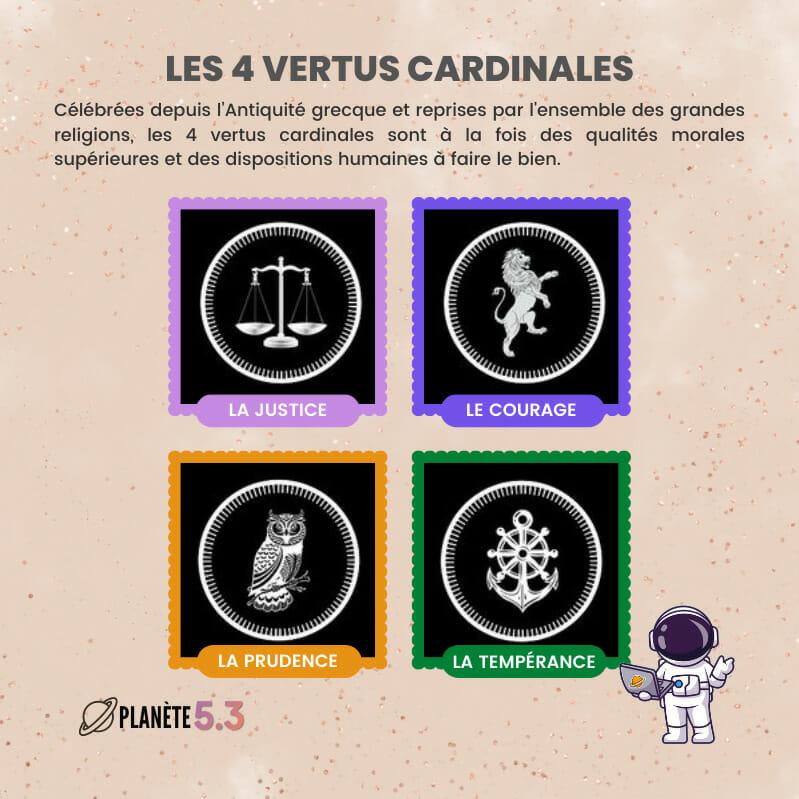You have obviously heard of them, but what exactly are the 4 cardinal virtues? Virtue is defined as an acquired (and not innate) disposition which leads man to do good. This is a very old philosophical notion dating back to Antiquity.
As early as the 4th century BC, Plato already distinguished four cardinal virtues: prudence, courage, temperance and justice. The term “Cardinal” comes from the Latin “cardo” which means “hinge”.
The four cardinal virtues – prudence, justice, temperance and courage – are considered foundations of moral life and spiritual life. We can thus integrate them into a process of self-reflection on our deep values and better self-knowledge.
Temperance (Moderation)
Among the 4 cardinal virtues, Temperance is the expression of moderation, sobriety and balance. The one that allows Man to control himself and moderate his desires and passions. This is another way of referring to self-discipline and self-control. It requires individuals to know how to resist temptations and demonstrate moderation in their daily lives.

Prudence (Wisdom)
Etymologically in Greek, Prudence designates the act of thinking and reflecting, by extension of showing wisdom before acting. It is one of the cardinal values, sometimes symbolized by the association of the snake and the mirror. The snake is protective and cautious. The mirror is not a symbol of vanity but of the examination of conscience which must govern all wise and thoughtful action. It allows us to see behind us, to meditate on the past.
Justice
Justice is a virtue which leads Man to want to give everyone what is due to them. It is associated with the idea of treating others impartially and fairly. It is also an important value in politics and law (equality before the law).
Strength (Courage)
Strength or fortitude (“fortitudo” in Latin) is similar to courage. It expresses our ability to confront the greatest human weakness, fear. Courage is considered an inner strength and capacity for resilience that allows individuals to assert themselves and persevere, always remaining true to their values. It is he who helps us face adversity, even in difficult or dangerous situations.
A final word on the 4 cardinal virtues
Reflecting on these 4 cardinal virtues which come to us from Antiquity, we can only be struck by their astonishing modernity and their relevance for our time. I have often found that these virtues resonate deeply with most of us, as if they touch on something universal in human nature.
Prudence invites us to reflect before action, justice reminds us of the importance of fairness in our relationships, temperance guides us towards a better balance of life, and courage pushes us to exceed our limits while remaining true to our values.
I therefore invite you to see these cardinal virtues not as distant philosophical concepts, but as a true inner compass to guide your daily choices and actions. In my professional career, I have been able to observe how these principles, when they are consciously integrated into our way of being and acting, become powerful levers for personal and professional development.
They help us build a more balanced, more ethical and, ultimately, more fulfilling life. Because deep down, what are we really looking for if not a certain wisdom to stay in line with our deep values?
Did you like this article? Share it with your community and discover my new book on Amazon.com

















